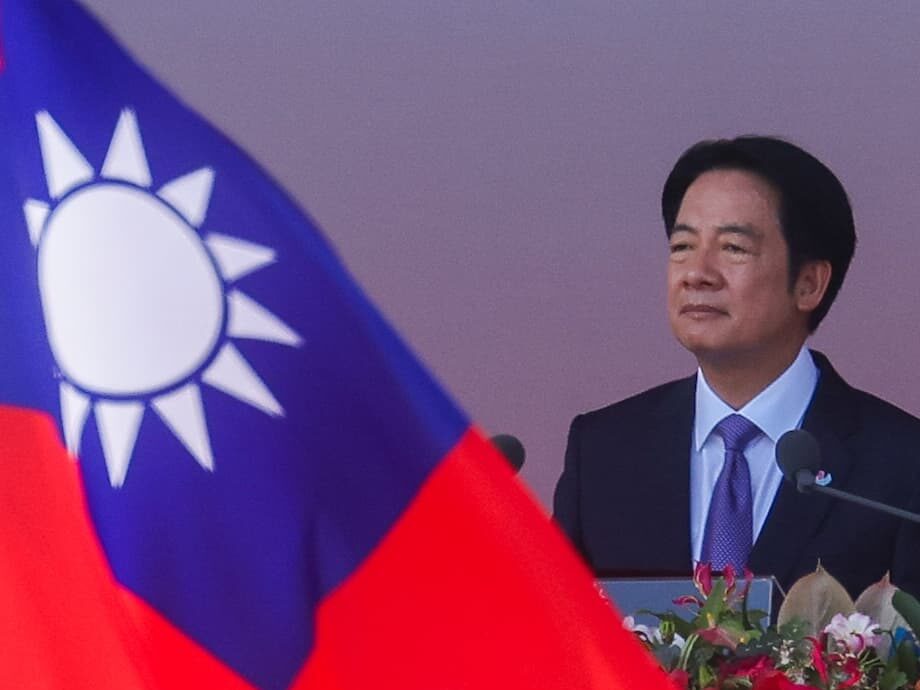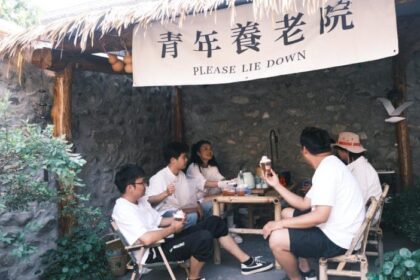Tense new phase in the China Taiwan information battle
China has offered cash rewards for tips on 18 people it accuses of serving in Taiwan’s military psychological operations, a move that landed one day after President Lai Ching te pledged stronger defenses in his National Day address. The notice, issued by police in Xiamen, a mainland city closest to Taiwan across the strait, alleges the named individuals spread separatist messages and incited secession. Authorities published photos, names, and Taiwan identity numbers, and promised up to 10,000 yuan for information that leads to arrests.
- Tense new phase in the China Taiwan information battle
- What exactly did Xiamen police announce?
- Taipei calls it cognitive warfare
- Why the reward notice is mostly symbolic
- Inside Taiwan’s psychological operations work
- Beijing’s message after President Lai’s National Day speech
- Previous bounties and a widening list of targets
- What cognitive warfare looks like in practice
- Regional stakes and likely next steps
- At a Glance
Beijing regards Taiwan as part of its territory, while the government in Taipei rejects that claim and runs its own elections, armed forces, and foreign policy. The Xiamen notice fits a wider pattern, pairing legal rhetoric with information campaigns that seek to pressure Taipei at home and abroad. It also highlights a rising focus on the cognitive front of cross strait rivalry, where shaping beliefs and sowing doubt can be as valuable as missiles and ships. The latest step publicizes personal data and signals that the mainland intends to name and shame those it sees as promoters of independence.
The timing raised eyebrows in Taipei, coming immediately after the president’s plans for a stronger air shield and a tighter defense posture. Mainland ministries criticized the speech and accused Lai of provoking instability. The messaging war quickly escalated, which is a familiar sequence in the current phase of cross strait competition. That cycle typically pairs official notices with media campaigns and a burst of online activity across platforms.
What exactly did Xiamen police announce?
According to the public security bureau in Xiamen, the 18 people are core members of a Taiwan military psychological warfare unit. The bureau said the unit is responsible for disinformation, intelligence collection, psychological operations, and propaganda broadcasts. Officials circulated portraits, full names, and identity numbers, casting the effort as a criminal pursuit under mainland law. The rewards on offer reach 10,000 yuan, about 1,400 US dollars.
Police framed the notice as a call for public assistance in tracking separatist plots. The language echoed prior statements on national security and aligned with a push to treat alleged secessionists as fugitives under mainland statutes.
“For a long time they plotted to incite separatist activities. Informants who provide valid clues will receive rewards of up to 10,000 yuan,” Xiamen police said in the notice.
State media amplified the claims. Reports said the group launched websites for smear campaigns, made games that cheer for secession, produced deceptive video content, ran illegal radio channels for infiltration, and used support from external forces to mold public opinion. The goal, in the mainland narrative, is to weaken the national identity of people in the Chinese speaking world and normalize Taiwan independence.
The notice also highlighted personal data, a tactic that can intimidate targets even if no arrests follow. Publishing sensitive details carries risks for families and colleagues, and it feeds online harassment. Taipei has long warned that doxxing and public shaming are central features of hostile information work aimed at Taiwan.
Taipei calls it cognitive warfare
Taiwan’s Ministry of National Defense rejected the accusations and said the mainland is exploiting the free flow of information in Taiwan to divide society and undercut trust in government. Officials described the bounty as an authoritarian stunt and urged the public to stand behind the armed forces.
In a statement, the ministry framed the role of the armed forces as a duty to the public.
“Defending national security and protecting the safety and wellbeing of the people is the unshirkable duty of every military officer and soldier,” the ministry said.
Taipei also said similar notices have shown up before and often rely on patchwork data gathered from open sources. The government argues that the mainland is attempting to turn Taiwan’s open society against itself by stirring outrage, suspicion, and fear.
Why the reward notice is mostly symbolic
The bounty has limited reach in practice. Mainland law has no force in Taiwan. The individuals named do not travel openly to the mainland, and there is no extradition arrangement between the two sides. Even if informants submit tips, arrests inside Taiwan would not occur under a mainland warrant.
There are still potential effects. People transiting third countries can face scrutiny, and public exposure can complicate overseas travel or employment. The public naming also pressures family members who may have business or study ties on the mainland, which is a frequent lever in cross strait disputes.
Mainland legal language often references the Anti Secession Law and national security statutes. These frameworks give officials broad latitude to label acts as secession, separatism, or subversion. Taipei views those labels as political tools rather than neutral legal categories. Taiwan officials also note that mutual legal assistance channels with the mainland do not exist in the way they do between many other jurisdictions, which limits real world enforcement.
Inside Taiwan’s psychological operations work
Taiwan organizes political warfare and psychological operations inside the armed forces through a structure that supports both peacetime messaging and wartime morale. The work spans troop education, counter disinformation, public outreach, and support to commanders during conflict. The mission is not unique to Taiwan. Most militaries run units that study adversary behavior, craft messages for different audiences, and blunt enemy propaganda.
How Taiwan structures the mission
In the Xiamen notice, mainland police described a unit with divisions dedicated to information work, intelligence gathering, tactical psychological operations, propaganda, morale building, and mobilization for wartime. That description aligns with how Taiwan’s political warfare system evolved since the late 1940s, when the government relocated to the island and built a military culture that blends security, ideology, and communications. Over time, reforms reduced purely ideological content and tilted toward democratic messaging, resilience, and transparency, especially as Taiwan’s society liberalized and media diversified.
Psyops versus cyber operations
Psychological operations and cyber units often cooperate, yet they are not the same. Cyber focuses on networks, intrusion, and technical disruption. Psychological operations focus on minds, perceptions, and behavior. A typical campaign might seed rumors on social platforms, amplify polarizing narratives, or plant fabricated documents to erode trust in leaders. In Taiwan, many of those methods have been traced to external actors and proxy media that operate in the information gray zone. The two disciplines share tools and timing, especially during crises, but they answer different questions about how to influence an opponent.
Beijing’s message after President Lai’s National Day speech
The reward notice followed a sharp response in Beijing to President Lai Ching te’s holiday address. Lai urged the mainland to choose dialogue and announced steps to strengthen air protection. Mainland agencies accused him of pushing separatism with outside help and warned that his words harmed peace and stability in the strait.
Beijing’s Taiwan Affairs Office and the Foreign Ministry framed Lai as a provocateur. A spokesman said the island’s leaders were creating danger and that the mainland would take necessary measures. State aligned outlets dismissed Taipei’s defense planning as costly and unrealistic, reflecting the propaganda contest that now surrounds every policy speech in Taiwan.
In his address, Lai repeated a request that has often appeared in statements from Taipei.
“We call on Beijing to renounce the use of force and pursue peaceful dialogue,” Lai said.
The defense agenda he laid out included a multi layer air defense concept sometimes called T Dome, upgrades to early warning sensors, and tighter integration across services. The plan also points to higher defense outlays over the next several years, with an emphasis on air and missile defense, counter strike capabilities, and civil resilience.
Previous bounties and a widening list of targets
This is not the first time mainland authorities publicized rewards for alleged Taiwan personnel. In June, security services listed 20 people they accused of hacking activity tied to the military. Taipei dismissed the move as intimidation. After that, mainland agencies named several alleged intelligence officers and linked them to a private group labeled as a mock navy for independence propaganda.
Taiwan’s Military Intelligence Bureau countered that the mainland uses domestic law to project the image of reach across borders and to discredit the armed forces. The bureau said these efforts aim to chill recruitment, shake public confidence, and complicate budget debates. Former officials argue that such tactics also signal that Taiwan’s counterintelligence has been effective, which in turn creates a motive for mainland publicity.
Liu Te liang, a former director general of Taiwan’s intelligence service, said the public lists serve a psychological purpose more than a legal one.
“The tactic tries to suggest deep infiltration, intimidate military personnel, and stir public criticism that could weaken intelligence work,” Liu said.
What cognitive warfare looks like in practice
Cognitive warfare targets how people think, not just what they see. The aim is to shape choices by eroding trust, magnifying division, and creating fatigue. It blends political messaging, selective leaks, forgeries, staged images, and emotional triggers. Social media makes that work faster and cheaper, while algorithms help adversaries find groups that are easier to influence.
- Seeding rumors through anonymous accounts and chat groups
- Pushing fabricated or edited videos that look authentic
- Publishing personal data to shame or pressure targets
- Boosting polarizing narratives with bots and paid amplifiers
- Creating fake civic groups, shell media brands, or front organizations
- Coordinating timing with military flights or naval patrols to heighten stress
Taiwan has built defenses against these techniques. The government runs rapid fact checks, shares threat indicators with platforms, and works with civil society to monitor manipulation. Schools, veterans groups, and local leaders are often trained to spot rumors and to report coordinated activity. The private sector and diaspora communities also play a role, since many influence operations travel across borders and languages. During major holidays and elections, hotlines and fact check portals surge in activity, a sign of how seriously the island treats information security.
Regional stakes and likely next steps
Cross strait friction already features frequent military flights and maritime patrols near Taiwan. Information operations run in parallel, priming audiences and complicating decision making for leaders. Any attempt to criminalize a wider group of Taiwanese personnel would inflame tensions further and trigger even stronger responses in Taipei.
The United States remains Taiwan’s principal security partner, approving arms packages and training support. Japan and other regional partners monitor the strait closely. None of those relationships change the legal limits of a mainland reward notice, yet they shape the strategic calculation. Each side is trying to show resolve without sparking a crisis that spirals beyond control. A contest that blends legal notices, media narratives, and military signals is likely to continue, since each element supports the others.
At a Glance
- Mainland police in Xiamen offered up to 10,000 yuan for tips on 18 alleged Taiwan psychological operations officers
- Authorities published photos, names, and Taiwan identity numbers of the listed individuals
- State media accused the group of running smear sites, seditious games, fake videos, and illegal radios
- Taiwan’s defense ministry rejected the claims as cognitive warfare and urged public support for the armed forces
- Legal reach is limited, since mainland law does not apply in Taiwan and the named people do not travel openly to the mainland
- The notice followed President Lai Ching te’s National Day address on stronger defenses and a request that Beijing renounce force
- Mainland agencies have issued similar bounties before, including a June list of alleged hackers
- Analysts see the move as part of a broader information struggle that targets trust, unity, and morale in Taiwan












